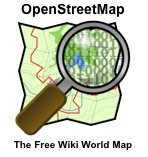The following is an outline of the successes and obstacles experienced over the course of the four months that we spent working with 11th grade learners at IkamvaYouth-Makhaza Branch. First, it is important to note that we (my project partner Jonathan Wang, the learners, and myself) set out to accomplish a set of tasks that were unique, demanding, both technically and intellectually, and progressive from an educational perspective—such an approach is representative of IkamvaYouth as a whole, be that as organization, an idea, or as a group of wonderful people. As a result, we were bound to have a certain degree of success with our project no matter the obstacles we faced.
Our approach to the project was multifaceted and as such, sought multiple outcomes and objectives. Generally speaking, the focus of the project was to work with Ikamva learners in the testing of flexible, low-cost, open-source mapping techniques, which included hand-held GPS devices, digital cameras, and www.openstreetmap.org, to produce detailed street-level maps of areas around Khayelitsha—namely the shops along Landsdowne Road at R310 and Zwelitsha. More importantly, the focus of the project was to introduce learners to discussions of maps and their uses along with lessons on photographic techniques in order to get students to engage critically with their spatial environments—to begin to think about their neighborhoods as a network of roads and buildings that had relationships with one another, often mediated by concepts such as formality and informality. We also wanted to use the project as a way to introduce new technologies and software, such as Google Earth and Photosynth, to learners to try to provide them with a sense of how cutting-edge technologies are shaping the world. In doing so, we hoped that learners would have their minds opened, if only slightly, to the limitless possibilities that computers and science present us in the modern age.

The first objective represents my research as a Visiting Scholar at the University of Cape Town. I am working with the Cape Urban Observatory Project to design and develop mapping techniques capable of efficiently and effectively mapping informal communities. Along with the project in Makhaza, I am working to map areas of Delft as well.
One of the main reasons we reached out to Ikamva to collaborate on this project was the fact that Ikamva learners come from the kinds of neighborhoods that our work seeks to explore. A central object of our work is to further the ends of community-based, participatory mapping as a means to promote community-driven development. As such, it was of great interest to us to try to involve learners in the scientific processes that produces authoritative information about the communities they live in. In terms of getting access to the areas to map and of getting learners involved in doing the actual mapping, we were quite successful. We were able to conduct the kind of tests we needed with equipment we had, and to this end, S’bu and Sinethemba (two of Makhaza Branch’s most dedicated tutors) were absolutely essential. They helped Jonathan and I navigate the neighborhoods of Khayelitsha, as well as capture the attention and imagination of the learners. Needless to say, I learned a great deal from the both of them about life in South Africa, life in the townships, and about the desire to overcome the obstacles to education that are presented a person as a result. For my education on these topics I am certainly indebted.
In terms of engaging with students, which represents the sort of second and third objectives to the project, I think we were pretty successful. Students were certainly interested in the digital cameras and immediately we saw them as a means to incentivize the actual work part of the mapping. We were able to design a couple of lessons that allowed learners to take the cameras home with them and use them to capture imagery of their neighborhoods to help with the map. They were all certainly keen because this also meant that they could use them to take pictures of their friends and families. We were able to project the imagery they took of their neighborhoods to discuss mapping and composition techniques, as well as concepts of mapping as a scientific approach, before going to do our field work. These in class exercises helped students stay engaged with the project material when they weren’t using the cameras or GPS devices in the field. We were also able to provide learners with DvD’s with their pictures and this gave learners a direct by-in to the project above the actual work itself.
Once in the field, things were always a little more challenging because as researchers we have to come in contact with the real world and doing so in Khayelitsha can be particularly difficult. This is where the majority of our obstacles occured. Language and cultural barriers alone between us as project leaders, the learners, and the community writ large presented certain obstacles to communication at times.
A second sort of related issue was the conspicuousness of the cameras while doing field work. They were often a source of confusion for residents of the community because many assumed us to be taking pictures of them to sell. Though we were able to explain to most people what we were doing, an improvement on this project would be to use GPS enabled cell phones that have a camera. That way we could collect image and GPS data while appearing less invasive to the community.
Over the next few months my project partner and I will be developing OpenSettlements.org which will be home to the maps and data we produced here while working at IkamvaYouth. We hope to explore the possibility of a map-based multimedia project using GPS enabled phones sometime next year, so that future learners can add to and build on the base-map data that the 11th graders helped create.
Ryan Bosworth
Visiting Scholar, University of Cape Town

 Lloyd Lungu
Lloyd Lungu